Better Than It Was!
Oct 23, 2025There’s a phrase that’s been floating around Garden Juju Collective for a long time. You’ll hear it on job sites, in garden beds, and at the end of a long day at Gateway Farm:
“Better than it was!”
It’s printed on our shirts—partly as a joke, partly as a philosophy. It's not about chasing perfection. It’s about showing up, doing the work, and trusting that your presence and effort have made a meaningful difference—even if the job isn’t done to some notion of ‘perfection’.
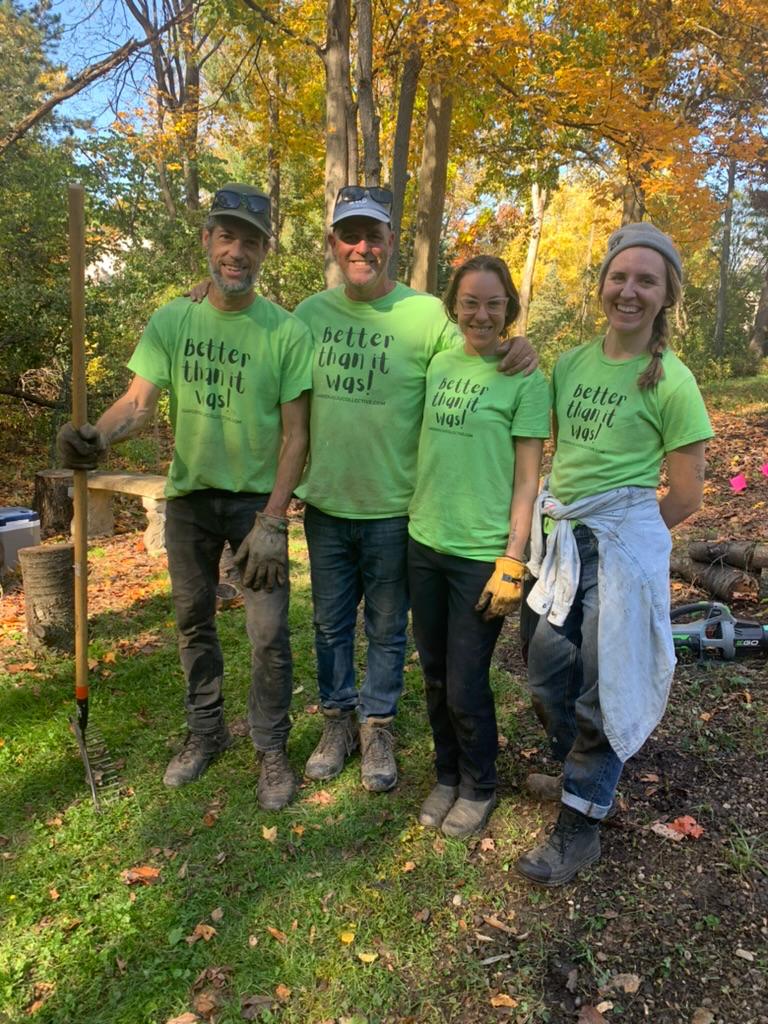
The Bend in the Wall
Charlie likes to tell a story about working on a tricky retaining wall project years ago, while doing garden work in Australia. The wall had a slight bend in it. Not the kind of thing most people would notice, but enough to make a perfectionist twitch. After a long, sweaty day, his Aussie friend (whose dad had been a builder) stood back, squinted at the work, and said profoundly:
“Ah well… it’s better than it was!”
There was something grounding in that—not careless, but clear-eyed. An acceptance of effort and improvement without the expectation of flawlessness. That moment stuck, and the phrase has followed us ever since. It’s become something like a daily mantra—especially in a world that constantly pushes us to be more polished, more perfect, more productive.
The Garden Is Never Done
Bridget often says that working in a garden reminds you over and over again that the garden is never done. Gardens are living systems. They are never truly “complete”. You can pour your heart and sweat into a space for hours and still walk away with a to-do list…but also a quiet sense of joy and pride.
You covered bare soil.
You got that invasive tree out of the ground, tap root and all.
You made space for something new to grow.
You planted food and flowers—beauty and hope for future days.
It’s better than it was!
In this work, there’s no final arrival point. But each day brings another layer of improvement—a step forward, a problem solved, a lesson learned, a harvest reaped. The point isn’t perfection. The point is participation.
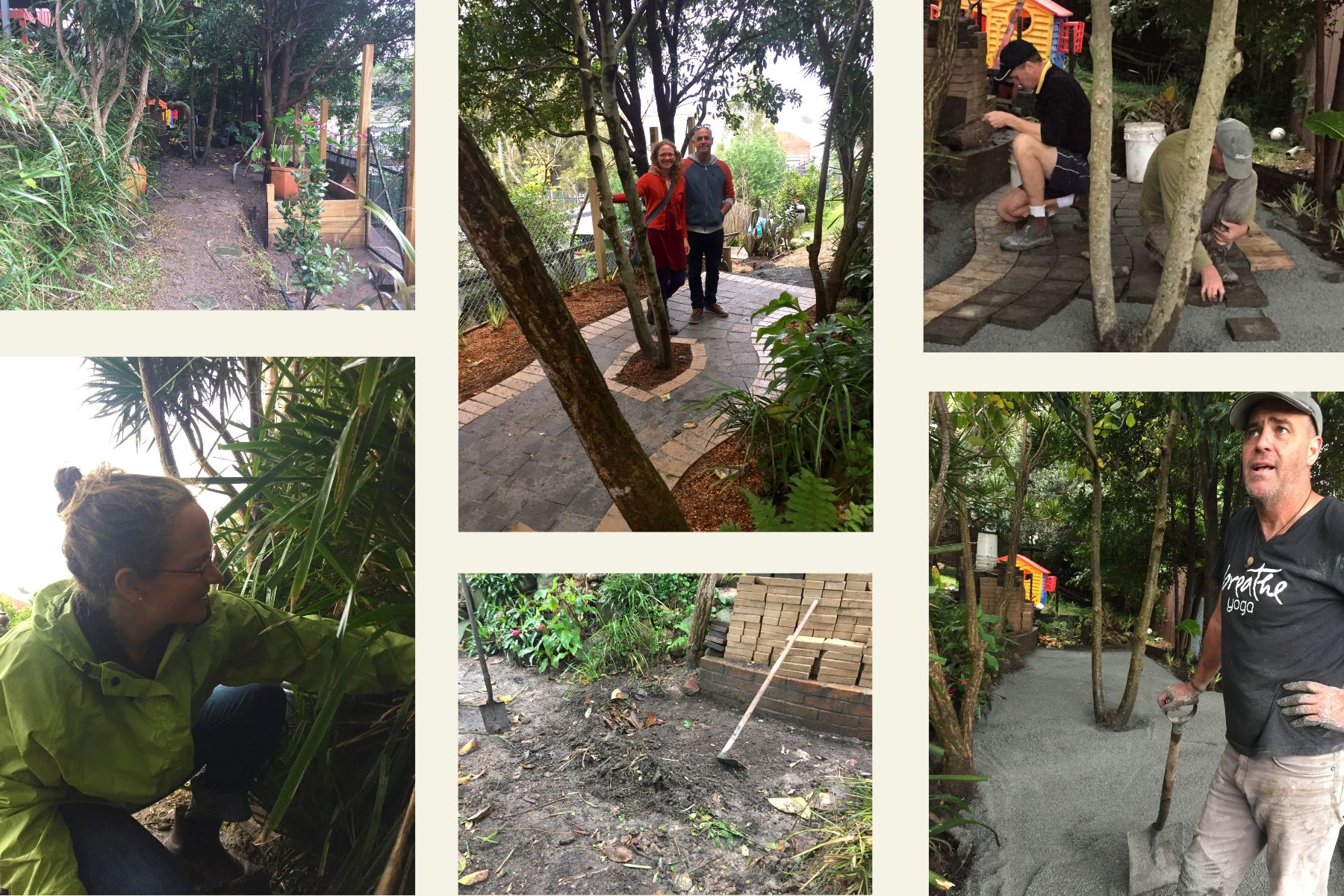
Systems, Soil, and the Mess in Between
This mindset shows up in every layer of our work—not just the gardens. At Gateway Farm, we’re constantly adjusting and reworking systems: human resources, business structure, landscape management. Miscommunications happen. Structures shift. We rethink, rewrite, rebuild. We engage with what emerges.
More than once we’ve removed landscape fabric, plants, irrigation system, a group dynamic, or a particular process or part of a system that didn’t serve the place or the people. And while those moments can feel messy—they’re part of the process. We’re always learning. Always asking: how can this be better than it was?
It’s not about shame for what didn’t work. It’s about iteration. Reflection. Praxis—where theory and practice meet in the soil, the ground, the everyday doing of things.
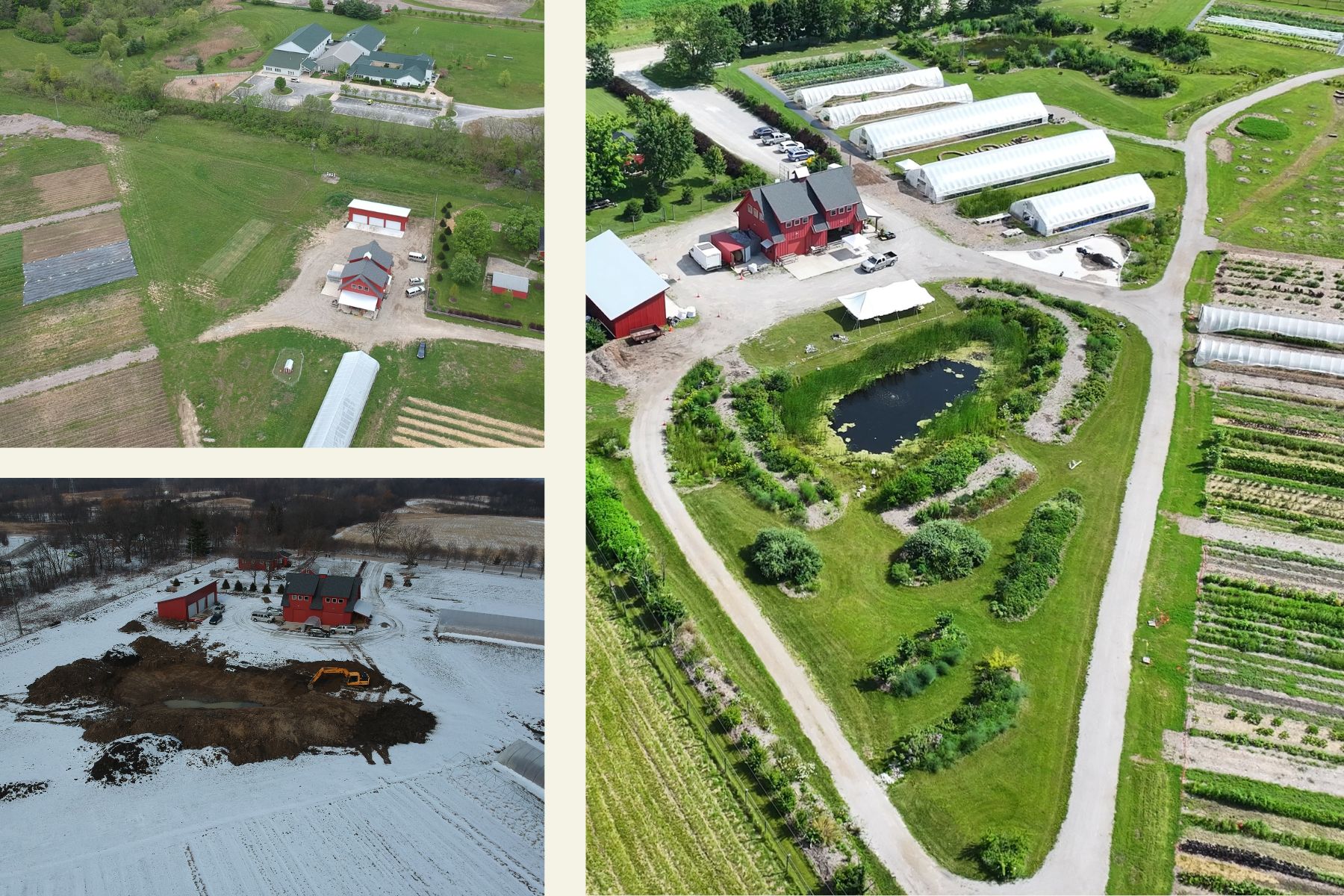
What We’re Really Offering
We’ve been at this for a long time. Individually and collectively, we’ve put in thousands of hours of design, digging, observation, and care. Whether we're mentoring students, restoring land, or co-creating new systems, our goal is always the same:
To leave the land, the people, and the place better than they were before we arrived. We aim for these relationships to be better off for the time that we spent with them.
We don’t promise perfection. But we do promise presence, skill, curiosity, and commitment. We show up with our best selves and the tools and skills we’ve spent a lifetime honing—and we invite others to do the same.
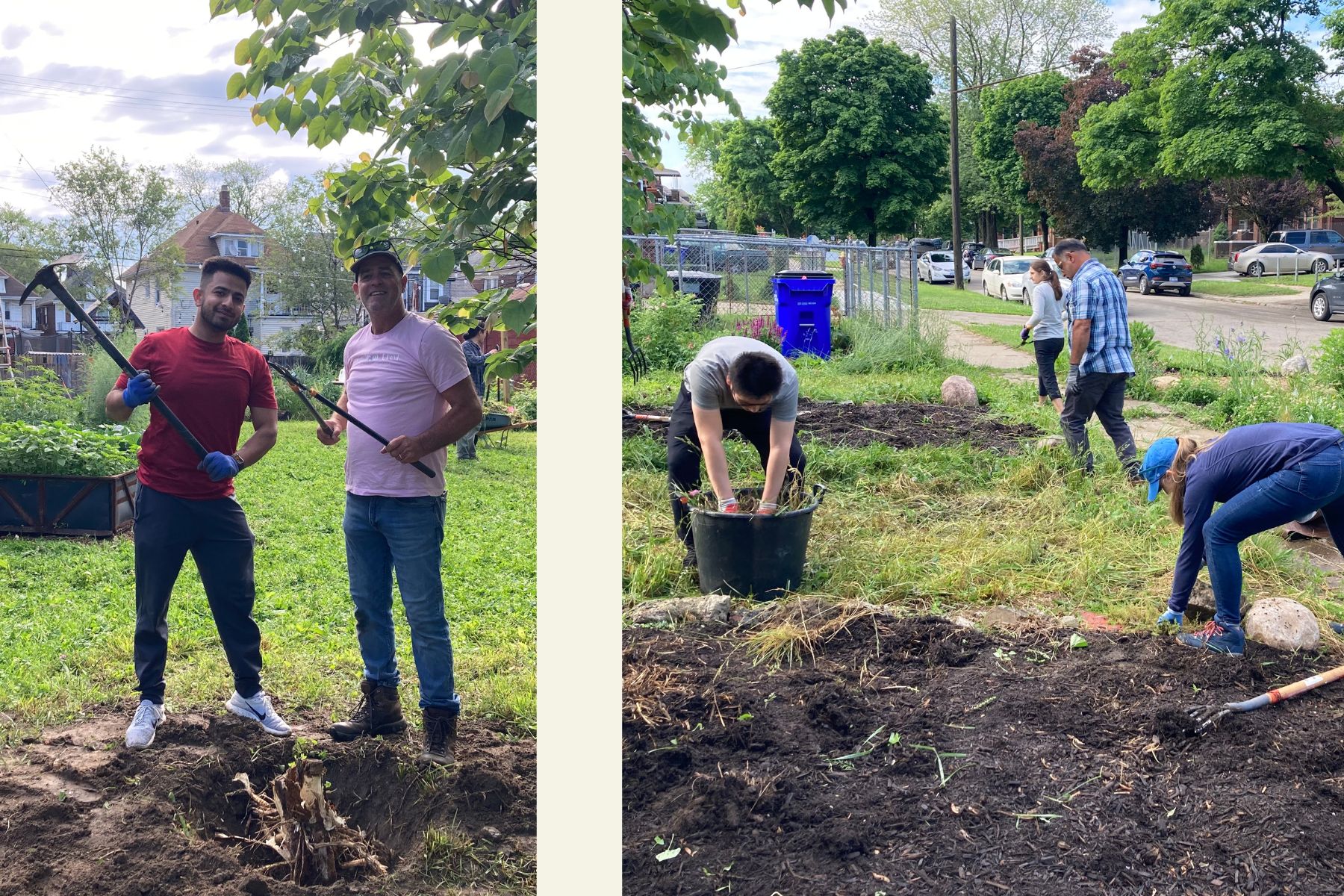
Some Theory on Practice
“Better than it was!” means it’s a good enough practice that is sensibly achievable in a given time and context. It doesn't mean that it doesn't take a great deal of focus, commitment and energy—it certainly doesn't mean being lazy or flaky.
Actual practice, the doing of real-life things in real-life complex situations, in ways that make some kind of difference, is far from easy. Donald Schön talks of practice as “swamp”; it’s not easy to move through.
Practice is bound by energy, finances, resources, social power, skills, prevailing cultural and legal norms. Moreover, every action has one or more opportunity costs, and moral consequences for other people, beings, and places that need to be weighed up and anticipated.
Further, we act with only partial consciousness. Much of what we all do is unconscious, programmed—it takes much skill to bring illumination, to bring what we do to the forefront of our attention/consciousness (Peter Willis).
According to Michel de Certeau, the western / colonial / theoretic mind is inclined to take the perspective of looking down from on high, when visualising, whereas we actually live our lives embodied, in-place, negotiating the real, inconsistent, and rough, physical, elemental world, and always with limited knowledge and energy.
Charlie once talked with a senior environmental government minister in Australia whilst working on an innovative and ambitious project. About the project he said, “It’s the kind of approach that we thought would be likely to work.”
“Better than it was!” is far from precise but it is very present. It helps work around the paralyzed fear of failure, rather embracing the potential little bits of failure. Constantly making progress, and celebrating small successes.
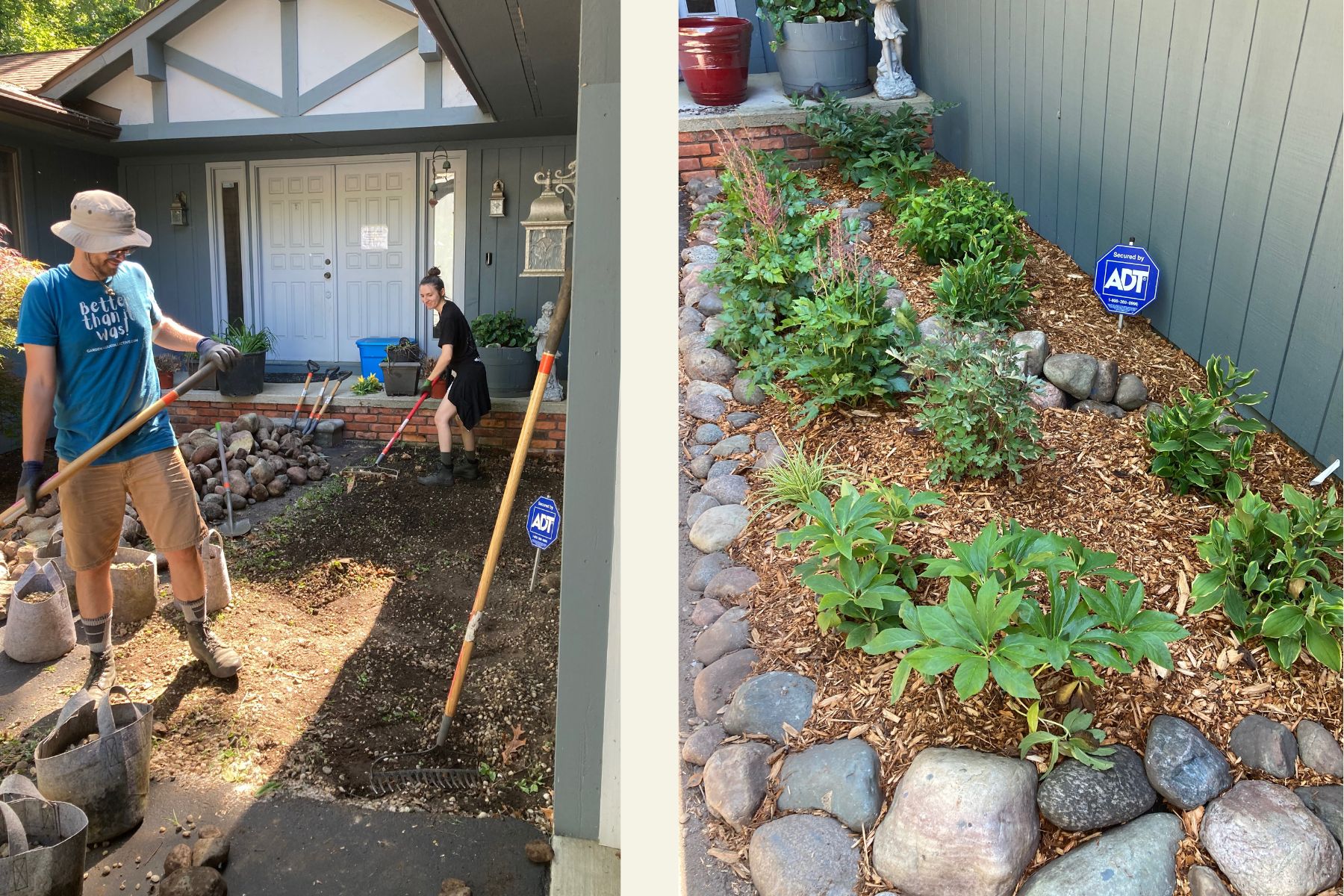
A Practice for Life
“Better than it was!” isn't just a gardening mindset—it’s a way to move through life. Writing a draft. Cleaning out a closet. Healing after trauma. Starting something new, even when you don’t feel fully ready.
Everything worth doing happens in layers.
Perfection is a myth. Imposed. Largely unachievable.
Improvement is a practice.
And that’s enough.
References
Certeau, Michel de. The Practice of Everyday Life. Translated by Steven F. Rendall, University of California Press, 1984.
Schön, Donald A. The Reflective Practitioner: How Professionals Think in Action. Basic Books, 1983.
Willis, Peter. Personal Communication, 2008.
